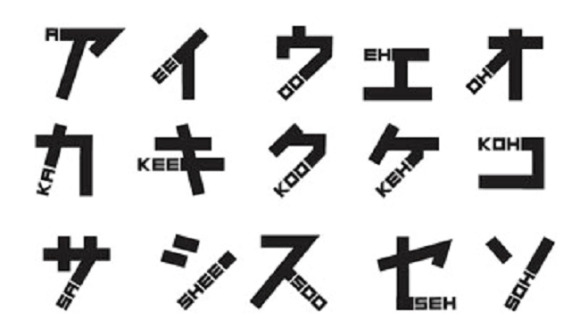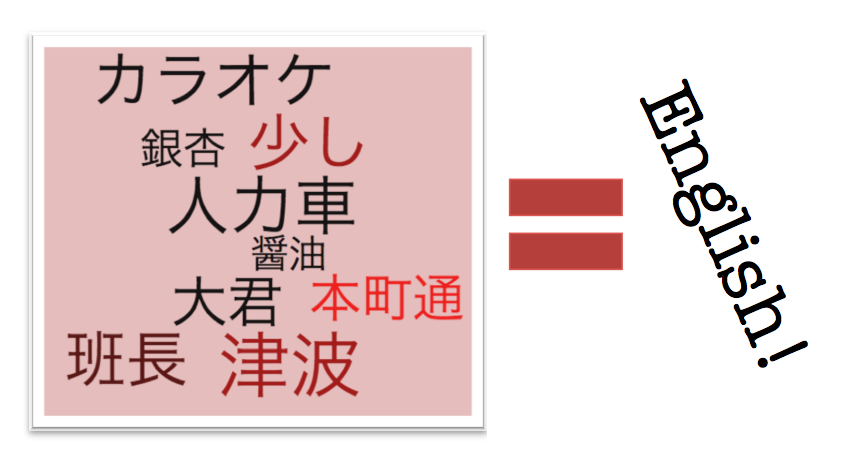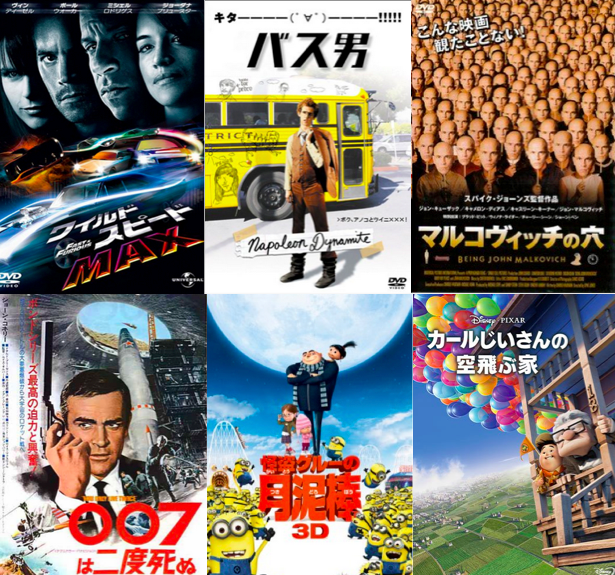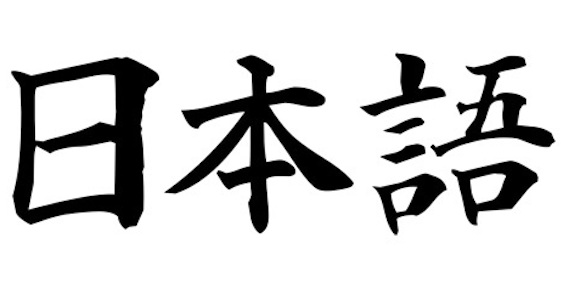【RocketNews24】Why Japanese doesn’t need swear words
Posted by Michelle Lynn Dinh (Shimane-ken, Chibu-mura, 2010–13), editor and writer for RocketNews24. The following article was written by Casey Baseel, a writer and translator for RocketNews24, a Japan-based site dedicated to bringing fun and quirky news from Asia to English speaking audiences.
The other day, my wife and I spent the day hanging out at the beautiful and awesome Hitachi Seaside Park. As we headed towards the exit at dusk, I pointed to a grove of trees with the sun setting behind them and got to bust out one of my favorite five-dollar Japanese vocabulary words: komorebi.
In retrospect, two things come to mind. First, shouldn’t a five-dollar Japanese word really be a 500-yen word? And second, why is it that the Japanese language has vocabulary as specific as komorebi, meaning “sunlight filtering though trees,” yet doesn’t have a good equivalent for *#&!, %?$!, or even &*!$?
Heads up! The following discussion of profanity contains language that might best be read when you’re not at work or school.
Read more at RocketNews24!
【RocketNews24】Learn Japanese from YouTube: Amp up your listening skills with this four-step guide
Posted by Michelle Lynn Dinh (Shimane-ken, Chibu-mura, 2010–13), editor and writer for RocketNews24. The following article was written by Fran Wrigley, writer and translator for RocketNews24, a Japan-based site dedicated to bringing fun and quirky news from Asia to English speaking audiences.
It used to be that if you were studying a foreign language in your own country, the only listening practice that was easily available to you was hearing your teacher or classmates speak, or listening to the CD that came with your textbook. The first Japanese textbook I ever bought actually came with a cassette tape, which was particularly irritating as it was 2006 and I didn’t even own a Walkman any more.
Then someone invented a website that allowed users to upload short videos for all the world to see. Fast-forward nine years and YouTube is one of the biggest sites on the planet, making it a veritable treasure trove of free online spoken content.
So whether you’re after language lessons, YouTubers who vlog in Japanese, or just want to try watching your cat videos in a foreign language, online videos could be your new secret weapon. The trick is just knowing where to look.
Continue to our four-step guide here!
【RocketNews24】Clever font sneaks pronunciation guide for English speakers into Japanese katakana characters

Written Japanese uses three kinds of script. At the top of the difficulty curve, you’ve got kanji, the complex characters originally imported from China that can require over a dozen brush strokes to write, with each kanji representing a word or concept.
A little less challenging are hiragana, a set of 50 curving phonetic characters, but if English is your native language, odds are you’ll have the least trouble with angular katakana. Like hiragana, katakana is a phonetic system, so each character corresponds to a syllable. Even better, while often one kanji can have three or four possible readings, each katakana has just one possible pronunciation.
Of course, you still have to memorize how to pronounce all 50 katakana (85 if you’re being really technical) in the first place. One group of graphic designers are aiming to make that task a little easier, though, with a font that combines katakana with phonetics written in English.
【RocketNews24】10 everyday English words that were originally Japanese
Michelle Lynn Dinh (Shimane-ken, Chibu-mura, 2010–13) is an editor and writer for RocketNews24, a Japan-based site dedicated to bringing fun and quirky news from Asia to English speaking audiences.
While Japan’s bank of English loan words has grown to the point where “context” and even “paradigm” can be understood by most people, there seems to be only a handful of Japanese words that have been sprinkled into the modern English vocabulary. Of course, there’s things like “manga”, “sushi,” and “karate,” which English speakers can instantly recognize as comics, a Japanese food, and a way to kick ass (in that respective order), but there are also some sleeper agent Japanese words traipsing about our English conversations. Let’s take a look at Japanese words, like “honcho” (as in “head honcho”) and “tycoon” (as in “oil tycoon”), that we use in English.
Job: Japanese Garden Center Program Coordinator (Seattle)
This posting closes January 20, 2014. Via Pacific Northwest JETAA. Posted by blogger and podcaster Jon Dao (Toyama-ken, 2009-12). Click here to join the JETwit Jobs Google Group and receive job listings even sooner by email.
————————————————————————————————————
Position: Japanese Garden Center Program Coordinator
Type: Part-time
Overview:
Job: Account Manager at Boston Technologies (MA)
————————————————————————————————————
Position: Japanese Speaking Account Manager
Posted By: Boston Technologies
Location: Boston, MA
Overview:
The Account Manager provides new business case management, customer service to assigned accounts, develops key relationships, supports client retention, and new business development’ efforts. S/he interfaces with Sales, Deployment & Configuration, and Client Services to improve new client on-boarding process and post sales service experience. S/he also acts as client liaison and advocate to ensure that client issues and needs are being handled efficiently within Boston Technologies. Read More
Michelle Lynn Dinh (Shimane-ken, Chibu-mura, 2010–13) is an editor and writer for RocketNews24, a Japan-based site dedicated to bringing fun and quirky news from Asia to English speaking audiences.
Hollywood films are popular around the world and Japan gets its fair share of dubbed and subtitled blockbusters. But sometimes things get a little mixed up when changing words from English to Japanese. This gives rise to translated titles that come in a wide range of strange from unintended sexual innuendos to spoilertastic summaries.
Let’s take a look at 13 weird Japanese movie titles that make you wonder what the translators were thinking.
【RocketNews24】Ninja life skills: 7 tips to make learning Japanese that little bit easier
Posted by Michelle Lynn Dinh (Shimane-ken, Chibu-mura, 2010–13), editor and writer for RocketNews24. The following article was written by Philip Kendall (Fukushima-ken, Shirakawa-shi, 2006–11), senior editor and writer for RocketNews24, a Japan-based site dedicated to bringing fun and quirky news from Asia to English speaking audiences.
Despite its apparent difficulty, Japanese is fast becoming one of the world’s most desirable languages to learn, with more and more Westerners studying it every day. Eventually, though, we all hit a wall with our studies and feel like we’re not making any progress. The books you threw yourself into with such enthusiasm start to become a chore to open, the army of kanji characters you have yet to study stare back at you with mocking disdain, and despite all the hours you put in you still can’t quite keep up with that anime you were determined to watch without subtitles. It happens to the best of us, but there are ways to break out of this rut, not to mention rekindle that love for studying Japanese, or any other language for that matter.
So today we’d like to bring you our short list of tips and tricks for boosting your Japanese language ability and make studying less of a chore. The following is a combination of both tips and experiences of foreigners who have achieved varying degrees of fluency in the language and our combined knowledge. It’s by no means the final word in language study, but give some of these a try and we’re sure you’ll be surprised at how quickly your Japanese proficiency improves.
【RocketNews24】Ninja language skills: Boost your Japanese with the power of onomatopoeia
Posted by Michelle Lynn Dinh (Shimane-ken, Chibu-mura, 2010–13), editor and writer for RocketNews24. The following article was written by Philip Kendall (Fukushima-ken, Shirakawa-shi, 2006–11), senior editor and writer for RocketNews24, a Japan-based site dedicated to bringing fun and quirky news from Asia to English speaking audiences.

There are in fact three distinct types of onomatopoeia in the Japanese language: 擬声語 giseigo, 擬音語 giongo and 擬態語 gitaigo.
It rarely appears in beginner or intermediate textbooks, but spend a day with any native Japanese speaker and you’ll soon realise that onomatopoeia is a vital part of the language. Utterances such as, “The rain fell like ‘pssshaaaa’” and, “My heart was going ‘boom boom boom’ the whole time!” may come across as a little ineloquent when said in English, but in Japanese these kinds of mimetic words are not only considered perfectly acceptable, but pop up absolutely everywhere.
So if you’ve ever wondered what sound a Japanese pig makes, how best to describe a rolling boulder as opposed to a tiny marble, or would be perplexed if a doctor asked whether the pain you’re feeling is more shikushiku than kirikiri, now’s your chance to hone your language skills and add a few new words to your Japanese vocabulary!
 Heather Wilson Tomoyasu (ALT Ibaraki-ken, 2004-06), previously Manager of Public Relations at the Japanese Chamber of Commerce, is now a newly established work-at-home mom – owner of Miny Moe (selling diaper & nursing pad samplers), “Expert Mom” for the app Mommy Nearest, and blogging in Brooklyn on her site US-Japan Fam.
Heather Wilson Tomoyasu (ALT Ibaraki-ken, 2004-06), previously Manager of Public Relations at the Japanese Chamber of Commerce, is now a newly established work-at-home mom – owner of Miny Moe (selling diaper & nursing pad samplers), “Expert Mom” for the app Mommy Nearest, and blogging in Brooklyn on her site US-Japan Fam.
No, He’s Not Adopted!: My husband is Japanese and I’m your standard run of the mill white American. As soon as we got pregnant, everyone was all “You are gonna have the cutest baby EVER!!!” which was fun to hear (a million times!) but how do you respond to that? “Thanks”? “I hope so”? We were riddled with a mixture of curiosity and anxiety over what our lil’ munchkin would look like… <CONTINUE>
 Giveaway: Diapers, Nursing Pads, & Wipes!!: If you are expecting, have a little one at home, or have a friend’s baby shower coming up, I hope you’ll enter my giveaway this week! We’re offering 1 Miny Moe Newborn Diaper Sampler (5 diapers from each of 6 brands), 1 Miny Moe Disposable Nursing Pad Sampler (1 pair from each of 3 brands), and 1 Diono Travel Wipes.
Giveaway: Diapers, Nursing Pads, & Wipes!!: If you are expecting, have a little one at home, or have a friend’s baby shower coming up, I hope you’ll enter my giveaway this week! We’re offering 1 Miny Moe Newborn Diaper Sampler (5 diapers from each of 6 brands), 1 Miny Moe Disposable Nursing Pad Sampler (1 pair from each of 3 brands), and 1 Diono Travel Wipes.
Go to the blog to see more posts!!
Comments on entries are always appreciated, and guest bloggers are welcome to use the contact form on the blog site to submit ideas!
JETwit note: CLICK HERE to join the JET Alumni Parents group on Facebook.
New JET Alum Parenting Blog: “US-JAPAN FAM”

Heather Wilson Tomoyasu (ALT Ibaraki-ken, 2004-06), previously Manager of Public Relations at the Japanese Chamber of Commerce, is now a newly established stay-at-home mom blogging in Brooklyn on her site US-Japan Fam to hopefully compile the ultimate resource for Japanese-American cross cultural families, delving into the matters of raising children bilingually, bi-culturally, and bi-racially in the Big Apple.
The first 8 entries are up and ready to roll:
A Little about Me and the Blog: find out more about me and my family (yes, I met my husband at a gay bar, WHAT??), and my plans for the blog.
Marathon of a Birth: discussing my 50 hour labor, natural birth (no meds – YIKES), and the whacked out medical system that billed $25K on a 36-hour hospital stay!
Back to Work – To Go or Not to Go, a New Mother’s Dilemma: you guessed it, this one is all about maternity leave, comparing the US system to that of Japan and a few other countries, and what went into my decision to stay at home.
My Roommate is a Grunter and Poops his Pants: about co-sleeping (same room or same bed) with your children
Sleep Training: Am I the Trainee or the Trainer?: how we got our little one on the Babywise schedule and I’m back to a heavenly 6+ hour consecutive nighttime sleep again!!
Shoot ‘Em Up: The Vaccination Debate: a bit controversial, but in the end you just gotta be informed and make the right decision for your family!
Baby Wearin’ & Stroller Struttin’: I weigh the pros and cons of different ways to get your baby around the city!
What They Don’t Tell You to Expect When You’re Expecting (And Afterward): a hilarious list I compiled for moms and dads alike!
Comments on entries are always appreciated, and guest bloggers are welcome to use the contact form on the blog site to submit ideas!
JETwit note: CLICK HERE to join the JET Alumni Parents group on Facebook.
Posted by Benjamin Martin, a 5th year JET in Okinawa, publisher of the blog MoreThingsJapanese.com and author of the YA fantasy novel Samurai Awakening (Tuttle).

Chahan is an Okinawan take on fried rice. Like many Okinawan dishes it is heavily influenced by Chinese cuisine. Like Chanpuru, a similar category of Okinawa cuisine, Chahan’s basic flavor comes from a combination of soy, garlic, and dashi. Since there are many ways to make or buy dashi, the final flavor of the dish, and the ease of its recipe can be changed depending on your approach. Modern Chahan also often has an American influence in the addition of spam. Below is a modern, yet quick take on this Okinawan dish. It is by far my most popular post on MoreThingsJapanese.com. I hope you enjoy my take on a classic Okinawan favorite.
Ingredients
- 3 servings cooked white rice
- 1 piman (green pepper)
- 1 tamanegi (onion)
- 1 package frozen vegetables
- 2 large eggs
- 170g meat (sausage, pork, chicken, spam, whatever)
- 2 tbsp extra virgin olive oil or no-stick cooking spray
Seasoning
- 1/4 tsp ginger
- 2 tsp hachimitsu (honey)
- 1 pkt dashi (5g)
- 1 tbsp powdered or minced garlic
- 4 tbsp soy sauce
- 1 tbsp sake (cooking, mirin, awamori, nihonshu, etc)
Job: Tomodachi Summer 2012 SoftBank Leadership Program 05.03.12
Via Ayusa. Posted by Kay Monroe (Miyazaki-shi, 1995 -97).
———————————————————————————————————
***Note: If you apply for this position, please let them know you learned of it from JETwit. Thanks.***
Job Position: Teaching/Mentoring
Location: San Francisco, CA
Position: Part-time (July 23 – August 11, 2012)
Salary: $2,500
Hour: 8:30 AM – 12 PM
http://usjapantomodachi.org/tomodachi-e-softbank-01.html
Program Description:
The Tomodachi Initiative is a public-private partnership supported by the US and Japanese governments to support Japan’s recovery from the Great East Japan Earthquake. The goal of the program is to foster the next generation, a “Tomodachi generation” of doers, thinkers and creators who are invested in the future of U.S.-Japan relations. The program will support the students to appreciate our two cultures, and to cultivate globally oriented skills and mindsets needed to thrive and make a difference. Led by Ayusa International in partnership with the University of California – Berkeley’s Center for Cities & Schools, students will partake in a unique civic engagement and leadership initiative called Y-PLAN (Youth – Plan, Learn, Act, Now) aimed at preparing a group of 300 Japanese youth to be leaders of change and revitalization.
Responsibilities:
Selected teacher/mentors will each lead a team of 20 -25 Japanese high school students through the unique 5-step Y-PLAN course in community development and leadership. The Center for Cities & Schools will provide teachers with training and a step-by-step manual to guide the students through the Y-PLAN process.
The overall Tomodachi Program design incorporates community service projects, cultural enrichment activities, global skills training, and experiential learning. It promotes civic responsibility and commitment to communities and inspires future leaders to be agents of positive change. Additionally, the program equips participants to take local action on issues of international importance, to empower, inspire and prepare them to work to create a peaceful international community. Read More
Jobs: Advertising Sales (Jackson Heights, NY) 04.09.12
Thanks to Rick Lin, Asian Fusion Magazine, for this posting. Posted by Kay Monroe (Miyazaki-shi, 1995 -97).
____________________________________________________________________________________________
Position: Advertising Sales
Posted by: Asian Fusion Magazine
Type: Full-time
Location: Jackson Heights, NY
Salary: NA
Start date: NA
WWW.ASIANFUSIONMAG.COM
Responsibilities:
1. Assist Editor-in-chief with correspondence to clients, potential clients, and other organizations, businesses,
etc.
2. Represent Asian Fusion Magazine at business-related functions and events
3. Drive advertising revenue through maintaining client relations and introducing new clients, including but not
limited to, getting signed contract, coordinate with team to complete editorial (ie. interview, photography).
4. Submit daily report detailing any and all activities and functions related to Asian Fusion Magazine Read More
Job: Freelance legal/financial translators 04.04.12
Via Geotext Translations. Posted by Kay Monroe (Miyazaki-shi, 1995 -97).
———————————————————————————————————
***Note: If you apply for this position, please let them know you learned of it from JETwit. Thanks.***
Job Position: Freelance legal/financial translators (both J<E and E>J)
Location: Europe, Asia, and the United States
Salary:N/A
Hour: N/A
Description:
Geotext Translations, a legal/financial translation company is seeking highly competent freelance Japanese to English and English to Japanese translators.
Geotext Translations was established in New York in 1997 and currently has offices in Europe, Asia, and the United States. We work daily with leading law firms and corporations and are extremely selective in our recruitment, contracting exclusively with experienced, highly skilled linguists. Our commitment to relationship management with our ICs is steadfast and well documented—we guarantee payment within 30 days and often have payment processed within 2 weeks.
Additional information is available on our ProZ blueboard at http://www.proz.com/blueboard/3856 and our website at www.geotext.com.





